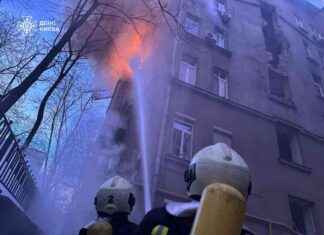Gas Supply Disruption in Moldovan Transnistria as Ukraine Halts Russian Gas Transit
In a groundbreaking turn of events, the separatist region of Transnistria is currently facing a severe gas and heating crisis after Ukraine decided to halt the transit of Russian gas on January 1, 2025.
History in the Making: Ukraine’s Decision Impacts Gas Flow to Europe
The turmoil began unfolding early Wednesday when the local gas transport company, “Tiraspoltransgaz,” declared widespread gas shutdowns that are now affecting heating plants, residential homes, and apartment complexes equipped with independent heating systems. Residents were cautioned about potential gas shortages and advised to turn off their gas valves to prevent any mishaps.
The repercussions of this situation are dire, with complete suspension of heating and hot water services in residential areas. Gas supply has been restricted solely for cooking purposes, contingent upon the remaining network pressure, which is expected to deplete soon. Roughly 450,000 residents residing in this pro-Russian separatist territory are bearing the brunt of this crisis.
The root cause of this disruption lies in the expiration of the gas transit agreement between Russia and Ukraine. Furthermore, the Russian energy behemoth Gazprom has pointed to “unmet payment obligations” as the reason behind the abrupt halt in gas supplies to Moldova. Vadim Krasnoselsky, the leader of Transnistria, asserted that the region had braced itself for such a scenario, attributing the supply cut to payment disputes between Moldova and Gazprom.
Ukrainian President Volodymyr Zelenskyy has labeled the cessation of gas transit as a significant setback for Moscow, urging European nations to stand in solidarity with Moldova during this transformative “energy period.”
Moldova had previously declared a state of energy emergency lasting 60 days starting from December 16th to prepare for potential gas supply disruptions. This turn of events necessitates the region, along with neighboring countries like Hungary and Slovakia, to seek alternative energy sources in lieu of Russian gas.
Expert Insights: Ukraine’s Bold Move and its Ramifications
Renowned geopolitical analysts have hailed Ukraine’s decision to halt Russian gas transit as a bold and strategic move that could reshape energy dynamics in the region. This unprecedented step has not only impacted Transnistria but has sent shockwaves across Europe, prompting discussions on diversifying energy supply chains to avoid such vulnerabilities in the future.
Community Response and Implications for Residents
As the gas supply disruptions persist in Transnistria, residents are grappling with the harsh reality of living without adequate heating and hot water services during the peak winter season. Local authorities are working tirelessly to mitigate the impact of this crisis on vulnerable populations, emphasizing the need for swift action and international support to address the looming energy crisis.
Looking Ahead: Exploring Sustainable Energy Solutions
In the wake of this gas supply disruption, policymakers and energy experts are advocating for a shift towards sustainable and renewable energy sources to ensure energy security and resilience in the face of geopolitical uncertainties. This crisis serves as a stark reminder of the importance of diversifying energy supply chains and investing in alternative energy technologies to safeguard against future disruptions.
As we navigate through these challenging times, let us reflect on the interconnectedness of global energy systems and the imperative of fostering cooperation and innovation to build a more sustainable and resilient energy future for all. Together, we can overcome the current crisis and pave the way for a greener and more secure energy landscape for generations to come.

















